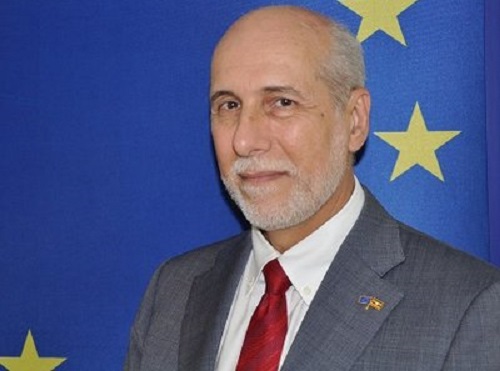
70 years after the Universal Declaration, the European Union has chosen seven priority areas to support
COMMENT | ATTILIO PACIFICI | Seventy years ago, when global leaders came together to agree on the Universal Declaration of Human Rights, the world was just beginning its slow and painful recovery from a devastating World War. Tens of millions of people had died, millions of them systematically killed because of their ethnicity, religion, political beliefs or sexual orientation.
The beginning of the first article of the Declaration, “All human beings are born free and equal in dignity and rights”, sounds indisputable today. Yet, at the time of the signature of the convention in 1948, African countries were yet to be liberated, and a vast number of Europeans would still be denied fundamental freedoms for decades to come.
Europe’s own painful history of human rights violations, war and non-democratic regimes causes the European Union and its Member States to value the Universal Declaration of Human Rights (UDHR) even more today. Even though the world has changed significantly in the past 70 years, the UDHR remains morally, politically and legally just as relevant – or even more so – as it was in 1948.
The UDHR has prompted dozens of international human rights treaties and declarations, regional conventions, and national human rights legislation. It also inspired European states to agree on the European Convention on Human Rights in 1950.
Today, this international treaty protects human rights and political freedoms of 830 million European citizens in 47 countries. The European Convention established the European Court of Human Rights, which may hand down legally binding judgements in response to claims taken to the Court by any person or state party. Over decades, its decisions have forced many European countries to change their legislation to better ensure the human rights of their citizens, and obliged the payment of sometimes sizeable compensation to those found to have had their rights violated.
In Uganda, the constitution stipulates non-discrimination and equality for all citizens, with specific provisions to ensure the human rights of women, people with disabilities and children. However, as in many other countries, ensuring that laws and policies that guarantee the enjoyment of human rights are fully implemented and respected is a continuous effort. For this, national and local authorities, including government, parliament and courts, carry the main responsibility.
In the European experience, civil society actors – non-governmental organisations, religious and cultural institutions, individual human rights defenders – and a free media play a pivotal role in building citizens’ awareness of their rights and persistently reminding duty bearers of their responsibilities. Development partners can support both governmental and non-governmental actors to help them play their respective roles in ensuring that all people are fully able to enjoy their human rights.
The European Union and its Member States have chosen seven priority areas for action in support of human rights and democracy in Uganda for the period 2016-2020: 1) Freedom of Assembly, Freedom of Association, Freedom of Expression and Press Freedom; 2) Accountability and Anti-corruption; 3) Children’s Rights; 4) Women’s Rights and Gender Equality; 5) Transitional Justice; 6) Human Rights Defenders and Abolition of Death Penalty; and 7) Anti-discrimination.
Support to these areas is provided through cooperation with the Government of Uganda; especially in support to the Justice, Law and Order Sector (JLOS), and through cooperation with civil society organisations (CSOs).
The EU supports reforms of the JLOS sector, aimed at strengthening equitable access to justice and increasing accountability, by providing assistance to the government worth 66 million euros or Shs280 billion over three years. The European Union and its Member States also provide financial support to CSOs in Uganda to protect and promote human rights, on the basis of initiatives from Ugandan organisations. The areas of support are as broad in scope as human rights themselves: EU-funded projects promote transitional justice in areas that have suffered from violent conflict, ensure children’s rights, facilitate accountability of public officials to their constituencies, etc.
It is our joint responsibility to ensure that what was agreed on 70 years ago still becomes alive today. The European Union and its Member States are committed to continue working together with the Government of Uganda and all Ugandans to ensure that all women and men, girls and boys can fully enjoy all the rights they are entitled to.
*****
Attilio Pacifici is the Ambassador of the European Union to Uganda. He wrote this article on the occasion to mark Human Rights Day 2018.
 The Independent Uganda: You get the Truth we Pay the Price
The Independent Uganda: You get the Truth we Pay the Price



